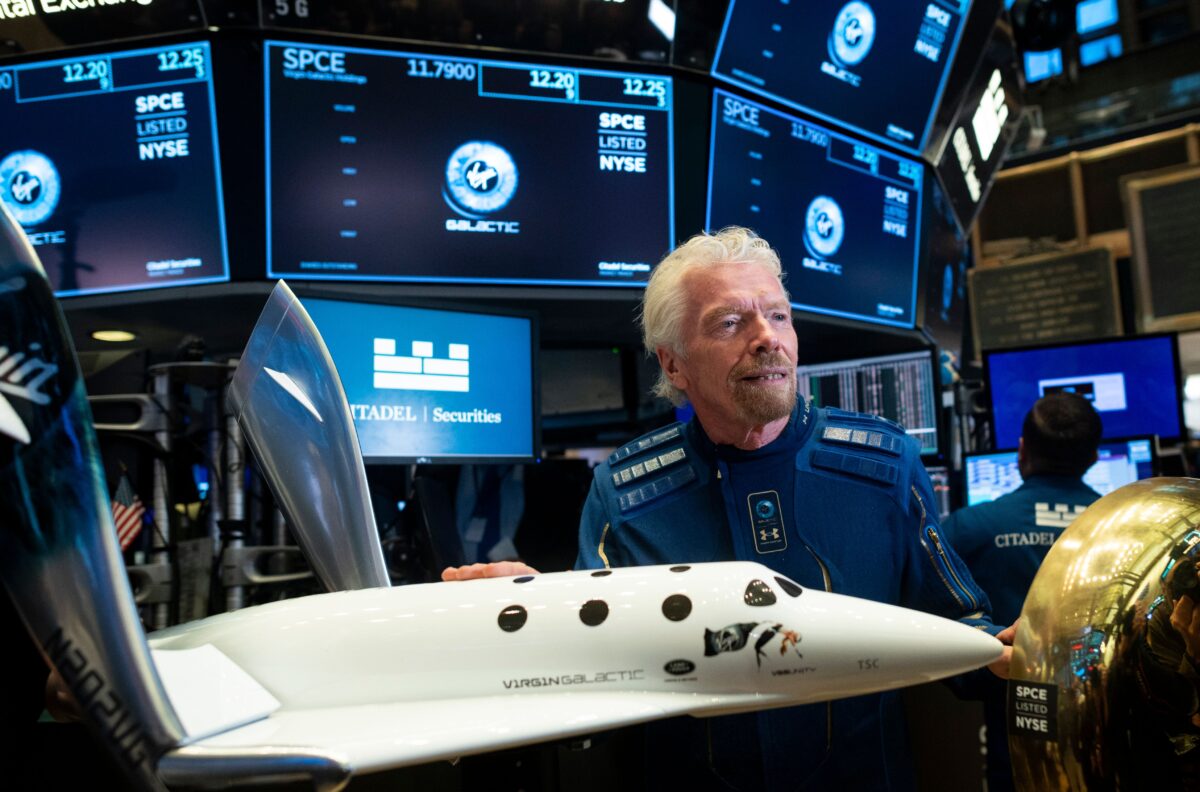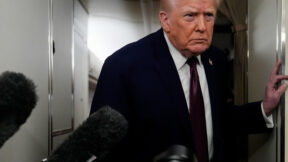CNN’s ‘Breathless’ Coverage of Richard Branson’s Space Flight Draws Fire from Journalism Experts

Johannes Eisele/Getty Images
Like most news outlets, CNN covered the Sunday space flight by Virgin Galactic and its founder, Richard Branson. Unlike its competitors, however, the network’s coverage drew fire from journalists — and from the Columbia Journalism Review — who deemed its “breathless” coverage as unusually promotional.
“Almost everything that ‘CNN Innovation and Space Correspondent Rachel Crane is saying sounds like Virgin Galactic wrote it for her,” Outside Editorial Director Alex Heard wrote in a message on Twitter, referencing reporting from Crane that included a comment the event gave her “goosebumps.” Heard added, “It’s genuinely strange.”
Crane was accompanied at the event by former Fox News reporter Kristin Fisher, whose parents both served as astronauts, and who made her debut appearance at Virgin Galactic’s launch. Fisher said the event was “inspiring,” but observed that it was a “publicity stunt” and acknowledged its critics, saying, “A lot of people maybe aren’t so thrilled that they’re all these billionaires in space… a lot of folks aren’t thrilled that there’s going to be a lot of branding in space.”
Fisher’s commentary wasn’t enough to satisfy critics. “None of the networks that broadcast live today the ‘Virgin Galactic Launches Richard Branson Into Space’ story persuaded me that this was break-into-regular-programming news,” New York University Department of Journalism Professor Jay Rosen wrote on Twitter. “The event remained at infomercial level.”
The Washington Post’s David Lynch joined the chorus, writing, “Some of this CNN coverage of Branson’s flight seems a little credulous.”
Lynch’s colleague, Paul Farhi, echoed the sentiment. “Compare the breathless, excited TV coverage of Richard Branson’s sub-space flight to *every* NASA moon launch 50 years ago,” Farhi wrote. “Appears reporters became cheerleaders over the decades.”
CNN’s own Brian Stelter appeared to criticize the launch itself, asking in a segment with a guest whether it was “moral” to travel to space. “Is it ethical to be launching rockets and flying off to space and spending all this money and burning all this fuel in an age of climate crisis?” Stelter queried, prompting the guest, Miles O’Brien, to posit, “I don’t think it’s mutually exclusive, Brian.”
Columbia Journalism Review’s Jon Alsop expanded on Stelter’s thesis in a column that took note of the media’s grievances with CNN’s coverage of the launch. “It’s irresponsible to talk up billionaires’ achievements without also noting the many victims of the system that benefits them,” Alsop wrote. “Private capital can develop technology that shoots people toward the stars. Its incentive structures can also trap people on earth in cycles of neglect, technological and otherwise.”
Virgin Galactic’s flight took its 70-year-old founder and five more passengers 53.5 miles above the Earth’s surface, exceeding NASA’s definition of space by a little more than three miles. The company marketed the launch as the first successful time a space company’s founder journeyed beyond the Earth’s border. The event took a little more than 17 years from the company’s founding in 2004.





Comments
↓ Scroll down for comments ↓